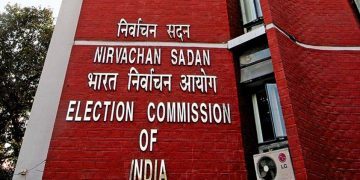In a fast paced development, Bangladesh Prime Minister Sheikh Hasina reportedly resigned, run away to India and has supposedly taken refuge in Delhi 5 August. Weeks of protests over job quota reforms had thrown the country into the worst ever turmoil since the war of independence in 1971. The movement spearheaded by students and youths of the country was reminiscent of the struggle that had led to the country’s freedom decades back. Then the people were fighting against the military and political forces of undivided Pakistan that sought to deny a democratically elected party to rule the country. But, this time around the people, especially students and youths have waged a titanic battle against a government that had captured power in controversial circumstances securing a doubtful mandate.
Hasina had to answer for a system of job quota that was allegedly used for favouring supporters of the ruling party by virtue of its members and supporters being relatives of those who had fought for the country’s freedom. The way the privilege was used, millions of aspiring youth have been denied government jobs cornered by the ruling Awami League and its supporters. The violent crackdown by the government took a heavy toll of lives and eventually it was the Supreme Court that reduced the quota from 30 per cent to 5 per cent.
The verdict itself was hailed by the agitators as a resounding victory for the protest movement. Hasina, however, condemned the way the agitation had been conducted accusing the sponsors of being aided and abetted by religious fundamentalists in league with the Opposition Bangladesh Nationalist Party (BNP).
Even if there was some truth in it, Hasina’s description of the agitators as “razakars,” who had collaborated with the Pakistani army during the liberation struggle, added fuel to fire. Though she later claimed her words were distorted, the damage was done.
Once the students tasted victory, they revived their demand for the resignation of Hasina as PM which rose to a crescendo and took a violent turn on 4 August. It was at this stage that the Army had to intervene by putting up barricades. According to the Bangladeshi newspaper Daily Star, Hasina left Dhaka 5 August morning for a “safer place” which was identified by Reuters as Delhi. According to one report, she wanted to record a speech before leaving the country. But she could not get an opportunity to do so. The ongoing mass protests had resulted in at least 300 deaths. Defying curfew and the police barricades, protesters opened the gates of the Gono Bhaban and entered the premises of the Prime Minister’s residence in the afternoon. Thousands of people who took positions at Shahbagh in the capital also headed towards the Gono Bhaban. Protesters joining from different places of the capital were seen storming Gono Bhaban, overturning furniture, smashing glass doors, and taking away different items. The protesters also set fire to the party office of Awami League in Dhanmandi.
Bangladesh Army Chief General Waker-Uz-Zaman addressed the nation in the afternoon and said a transitional government would be formed. “Justice will be served for all the killings. Keep trust in the army, we will work together,” he said. The General also called upon all to be quiet and said they would hold meetings with different political parties including the Bangladesh Nationalist Party, and Jamat-e Islami.
Significantly, in a Facebook post, Hasina’s son Sajeeb Wazed Joy, who is currently living in the US, urged the army to “keep our people safe and our country safe and to uphold the constitution.”
Bangladesh under Hasina has been doing well on the economic front, though the distribution of wealth and economic development left millions disenchanted. Her highhandedness in taking on her opponents had attracted criticism both within and outside the country.
It is a good sign that the Army chief has not till now shown any sign of supplanting democracy and imposing military rule. Bangladesh had bitter experiences of being ruled by army generals. If that happens, it would be a sad day for democracy. It could also be an alarm bell for New Delhi in many ways as Bangladesh, currently the only neighboring country friendly towards India, will now be certainly disturbed.






































